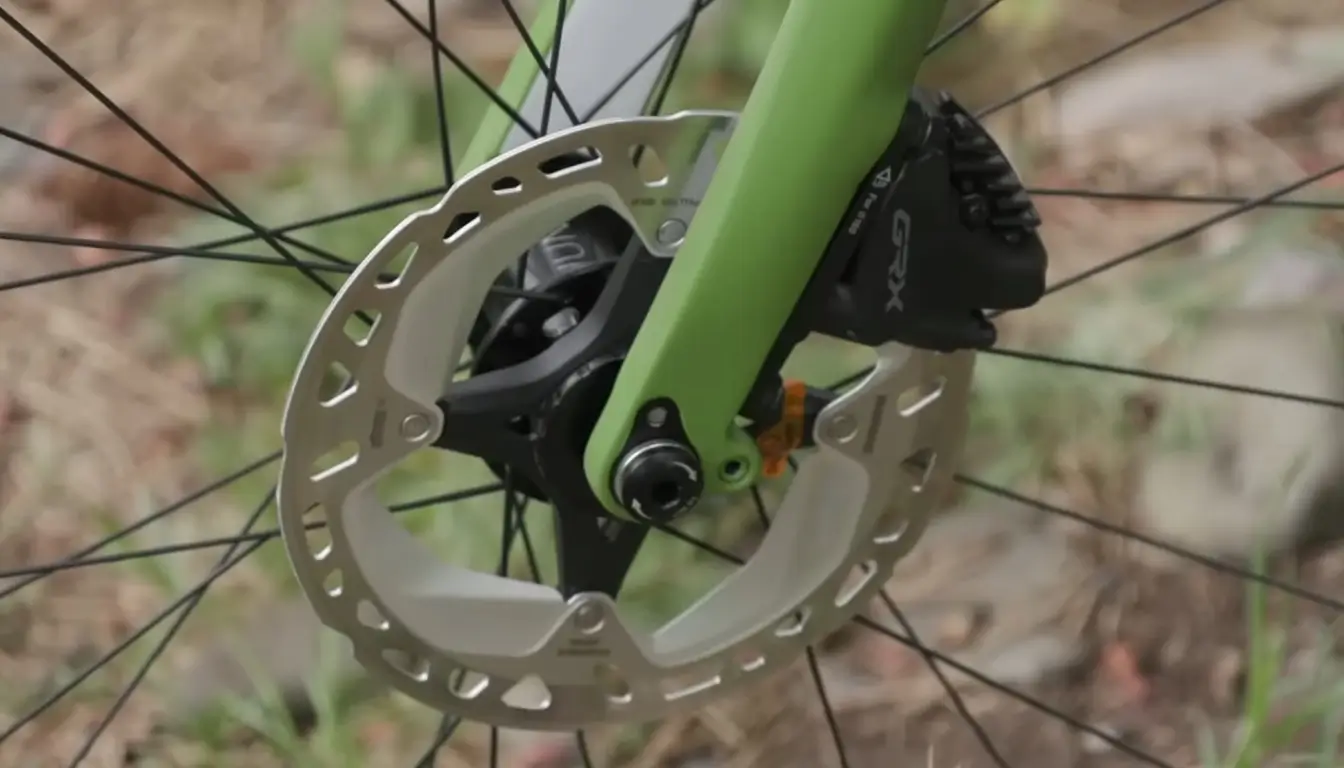There are many different brakes available such as cable and hydraulic disc brakes. Some people think that cable brakes are better than hydraulic brakes. Why cable brakes are better than hydraulic brakes?
Cable brakes are by far the superior option for beginning cyclists. They’re cheap, durable, and easy to install and maintain. You won’t find any of these features in a hydraulic brake system.
So this article will give you a short overview of the advantages of cable brakes and information to help you decide on what type of brakes to purchase.
Why Cable Brakes Are BETTER Than Hydraulic Brakes
Here are the key points you need to know to understand the benefits of a cable brake:
- Stopping Power
So the first reason is stopping power. We know this sounds counterintuitive, and we’ll fully admit that hydraulic brakes win this category on sheer stopping power alone. But that’s not to say cable disc brakes don’t stop your bike.
Most cable disc brakes can lock up the wheel and beyond that much stopping power.
We think, in particular, in road riding situations and gravel road riding situations. Cable disc brakes are more than adequate. It’s one of many different properties; it should be the only one you should focus on.
- Maintenance and Hack Ability
The second reason we still love cable-actuated brakes is the ease of maintenance and hackability with cable breaks. It’s pretty straightforward. Generally speaking, any road caliper will talk to any road lever.
You can even get road brake calipers to talk with mountain bike lovers with various pulleys.
Cables are still the way to go. If you don’t want to wear gloves when you work on your bike or worry about spilling potentially toxic fluids and live in a small apartment.
So if you wanted to make a simple change on your bike or adjust your brake pads. And you’ve hydraulic disc brakes, and you don’t want to deal with it the way time is going to be absurd.
- Easy To Adjust
If you’ve been wearing down your pads, you can usually twist some adjuster knobs, and you’re good to go. You can bring up that slack and get that excellent tight lever field you want.
Whereas with hydraulic disc brakes, you know, once they go spongy, once there’s too much of a padding gap, there’s no accurate on-the-fly adjustment. And you either have to put in the new pad or re-bleed it at home.
- No Existential Doubt
And lastly, the other reason we prefer cable disc brakes is this lack of existential doubt in things going wrong in the middle of nowhere.
Again, if you’re on a remote tour or, let’s say, you’re flying somewhere, you don’t have to worry about hoses getting kinked and having to scramble to find the proper braking fluid or a bike shop in a remote place that will have those specialized parts.
Whereas with a cable actuator break, generally speaking, most bike shops will carry brake cables and housing, and you’ll be able to fix it wherever you are.
So, again, this lack of existential doubt is just as significant to me personally as absolute stopping power.
What Are Disc Brakes And How Are They Different From Rim Brakes?
Disc brakes are a type of braking system that uses a caliper and brake pads to grip a spinning disc or rotor. Rim brakes, on the other hand, use a caliper and brake pads to grip the edge of a wheel’s rim.
These brakes are also better at providing heat dissipation than rim brakes, which makes them more effective at cooling down while they are in use.
When driving in wet or muddy conditions, disc brakes are more effective than rim brakes.
One of the main benefits of disc brakes is their larger braking surface area. They also have much greater stopping power, even in wet conditions.
What Are The Disadvantages Of Hydraulic Brakes?
Hydraulic brakes are an enhancement to a traditional bike brake. They were initially developed for mountain and BMX bikes, and they work by pressing a brake lever on the handlebars. Here are some disadvantages of hydraulic brakes –
- The brake pads wear much faster than any other type of brake pads.
- Repeated use causes the brake fluid to get saturated with water and dirt, which will foul the brakes inside.
- It may take a while to adjust to the new style brake pad and levers you need.
- The brake fluid will occasionally need to be replaced to prevent the brakes from getting contaminated with dirt and water.
- It is more likely that the brake levers will break compared to non-hydraulic brake levers.
- Hydraulic brakes are heavier than regular brakes and contain more moving pieces susceptible to failure due to wear and tear or rainwater/water contamination during use.
FAQs
Are hydraulic brakes better than cable brakes?
No, for mountain biking, cable brakes are the better choice. Hydraulic brakes are all about power, which is great for a motorcycle or a car. They can apply tremendous stopping force and take almost no effort to do so.
Which type of brake is more effective?
Cables are more effective because they are lighter, smaller, and still very powerful. The advantage of hydraulic systems is that they can lock the brakes, so you can skid to a stop when there is no room to use the brakes properly.
Which brakes are better for bikes?
Brake power is probably the single most important aspect of brakes, so hydraulic brakes are better when it really matters. They tend to be heavy, complicated to use, and a real pain to fix.
Conclusion
Again, it all depends on what you value. If you’re a maximize and want the most stopping power per buck, then sure, hydraulic this breaks. But if you value other things like ease of maintenance, hackability, and lack of existential, doubt, then cable breaks are best.
After reading about the benefits and disadvantages, we hope you’ll understand why cable brakes are better than hydraulic brakes.

I am Ryan Ford, a mountain biking enthusiast who loves to explore the outdoors. I also like to go on adventures with friends and anything else that involves being outside. I love my bike because it gets me out of the house and gives me an opportunity to enjoy nature.

